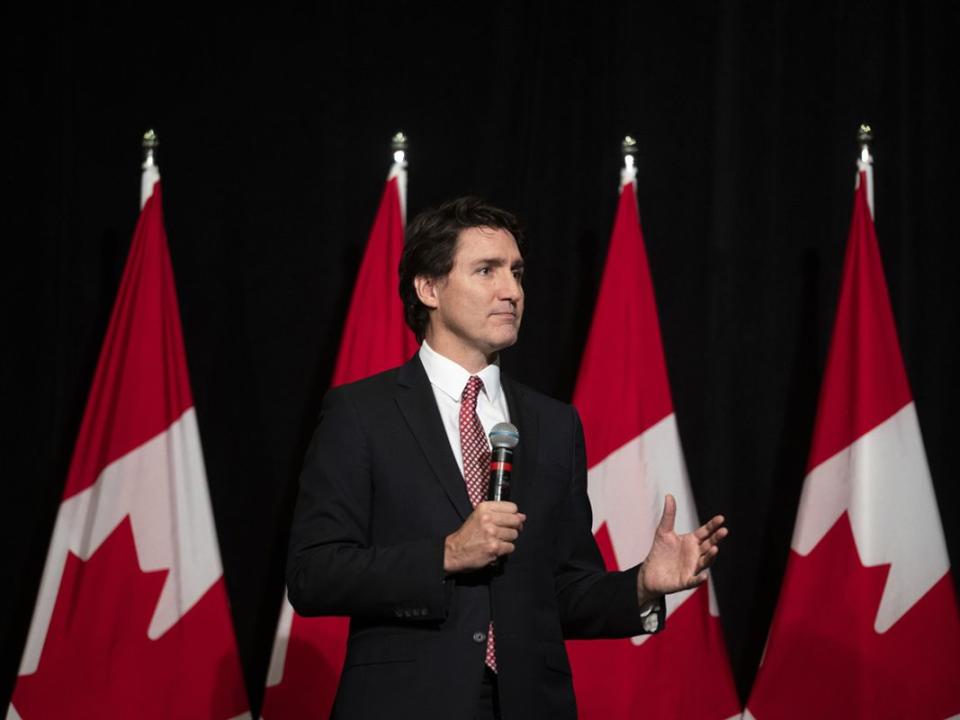Matthew Lau: Budget advice for the Trudeau Liberals: Cut spending!

The federal government is asking Canadians to share their ideas for Budget 2024 with an online questionnaire that closes in a month. If anyone needs good budgeting advice, it is the federal government! If they have received any in recent years, they have rejected it. Ever hopeful, however, I, a dutiful and overtaxed citizen, am happy to provide guidance.
Question one asks what policies would best create jobs and grow the economy. Among the multiple-choice options are corporate welfare, green energy spending, employment training programs, public transit investments and other policies consistent with the Liberals’ interventionist agenda. I selected the last option, “Other (please specify)” and wrote in: “Reduce government spending.” Increasing economic growth and creating productive jobs rely on putting economic resources to good use, and Milton Friedman’s famous maxim, “Nobody spends somebody else’s money as carefully as he spends his own,” pithily sums up the problem with almost all government spending: it is wasteful. It puts economic resources to unproductive use.
To be specific on where to reduce spending, the best place to start is with the government departments dedicated to corporate welfare, industrial policy and other central planning initiatives that obstruct the operation of the market economy. Canada’s seven — yes, seven — regional economic development agencies, which are essentially corporate welfare mills costing billions annually, should be shut down. So too should most of Innovation, Science and Economic Development Canada, another major source of corporate welfare and central planning. And with it: the Competition Bureau. Eliminating the Competition Bureau pays a double dividend: first, less spending on bureaucrats and, second, relieving industry of the burden of bureaucrats trying to dictate their private investments.
The Government of Canada website lists 207 departments, agencies and crown corporations. Many can be eliminated entirely and with significant fiscal and economic benefit, for example: Agriculture and Agri-Food Canada (and with it the Canadian Dairy Commission, Canadian Grain Commission, Farm Products Council of Canada and Farm Credit Canada), Canada Council for the Arts, the National Arts Centre, the Labour Program within Employment and Social Development Canada (and with it the labour regulations it imposes), Telefilm Canada, Women and Gender Equality Canada, and the Youth Secretariat. CBC, Canada Post, and VIA Rail should be privatized. National programs for child care and dental care should be cancelled, and if government is to provide health insurance it should not cover non-catastrophic expenses. The Liberals like to boast that since 2015 they have spent over $120 billion “to grow Canada’s clean economy.” But because by their own admission a tax, not spending, is the best way to reduce emissions, that spending should come down to zero.
On now to question two: how can the government best support Canada’s future economy? The multiple-choice selection again provides a menu of government spending and interventions. I again check off, “Other” and write in, “Again: reduce government spending!” Having provided a detailed list of what to cut in my answer to question one, I needn’t repeat it. Question two, however, differs from question one by listing specific industries for government support, including clean technology and renewable energy, such as solar. But supporting specific industries is exactly what the government should not do. Not only does it misallocate capital among existing industries, but it may prevent the development of newer, better industries by protecting the existing ones and starving new ones of capital.
Question three asks how the government can ensure no Canadian is left behind, with multiple-choice options including supporting the poor and working to end systemic racism, tackle gender inequalities and address discrimination. On supporting the poor, the people writing the budget should read an instructive article by 1982 economics Nobelist George Stigler, published in 1970 in the Journal of Law & Economics. Titled “Director’s Law of public income redistribution,” it established the general rule that “public expenditures are made for the primary benefit of the middle classes, and financed with taxes which are borne in considerable part by the poor and the rich.” If public expenditures are generally a burden on the poor, a corollary is that reducing government spending is likely to help them. On reducing racism and discrimination, the work of 1992 Nobelist Gary Becker demonstrated that free markets have a strong positive effect. To support the marginalized and reduce unfair discrimination, therefore, the government should reduce its spending and regulation.
Question four asks for my top priorities for Budget 2024. In case the message has not yet got through, I repeat: “Reduce government spending!” All those with the same priority are encouraged to fill out the government’s questionnaire at www.letstalkbudget24.ca.
Matthew Lau is a Toronto writer.
Bookmark our website and support our journalism: Don’t miss the business news you need to know — add financialpost.com to your bookmarks and sign up for our newsletters here.

 Yahoo Finance
Yahoo Finance 